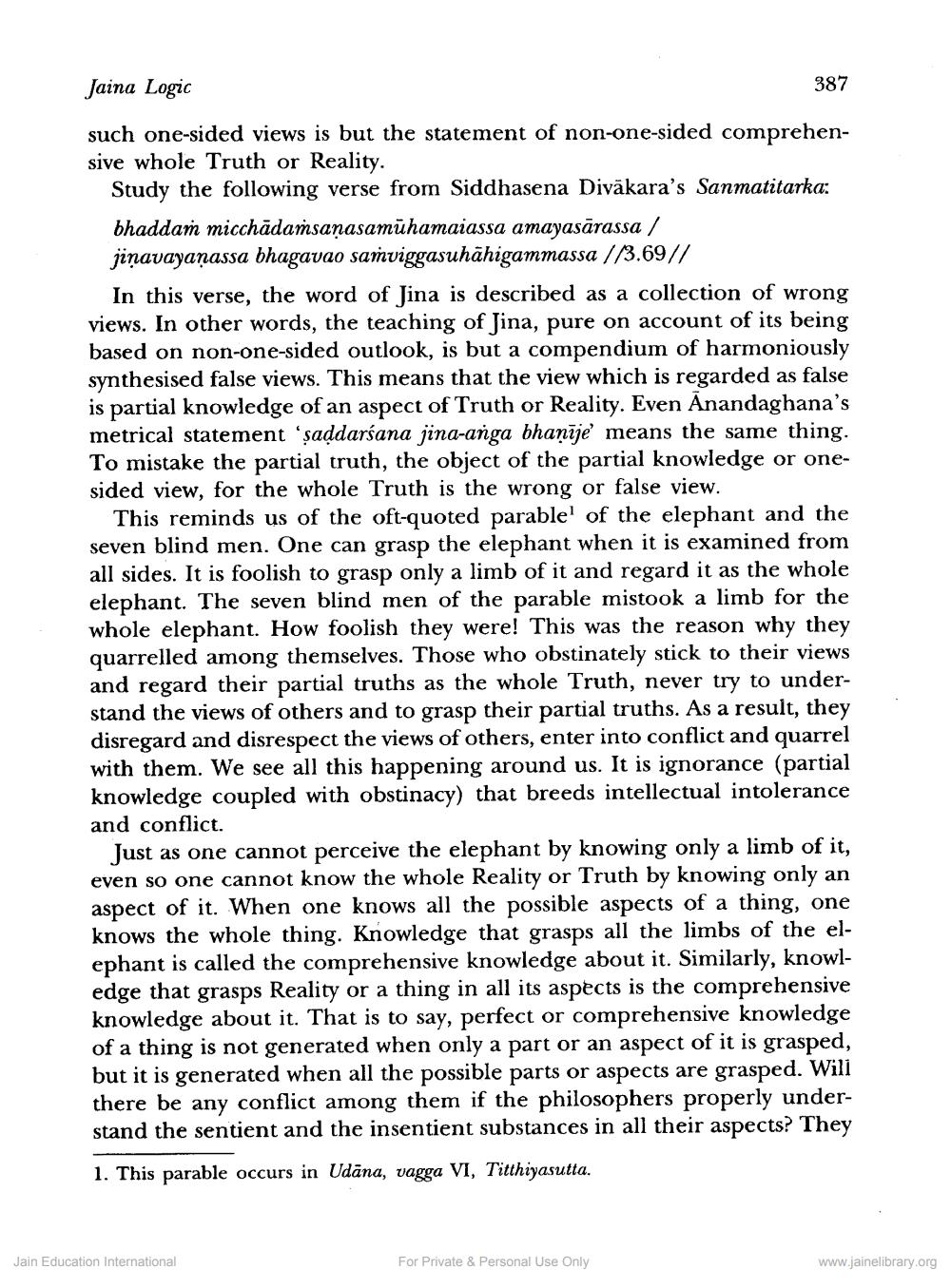________________
Jaina Logic
387
such one-sided views is but the statement of non-one-sided comprehensive whole Truth or Reality
Study the following verse from Siddhasena Divākara's Sanmatitarka: bhaddam micchädarsanasamühamaiassa amayasārassa / jinavayanassa bhagavao samviggasuhāhigammassa //3.69//
In this verse, the word of Jina is described as a collection of wrong views. In other words, the teaching of Jina, pure on account of its being based on non-one-sided outlook, is but a compendium of harmoniously synthesised false views. This means that the view which is regarded as false is partial knowledge of an aspect of Truth or Reality. Even Anandaghana's metrical statement 'șaddarśana jina-anga bhaņīje' means the same thing. To mistake the partial truth, the object of the partial knowledge or onesided view, for the whole Truth is the wrong or false view.
This reminds us of the oft-quoted parable of the elephant and the seven blind men. One can grasp the elephant when it is examined from all sides. It is foolish to grasp only a limb of it and regard it as the whole elephant. The seven blind men of the parable mistook a limb for the whole elephant. How foolish they were! This was the reason why they quarrelled among themselves. Those who obstinately stick to their views and regard their partial truths as the whole Truth, never try to understand the views of others and to grasp their partial truths. As a result, they disregard and disrespect the views of others, enter into conflict and quarrel with them. We see all this happening around us. It is ignorance (partial knowledge coupled with obstinacy) that breeds intellectual intolerance and conflict.
Just as one cannot perceive the elephant by knowing only a limb of it, even so one cannot know the whole Reality or Truth by knowing only an aspect of it. When one knows all the possible aspects of a thing, one knows the whole thing. Knowledge that grasps all the limbs of the elephant is called the comprehensive knowledge about it. Similarly, knowledge that grasps Reality or a thing in all its aspects is the comprehensive knowledge about it. That is to say, perfect or comprehensive knowledge of a thing is not generated when only a part or an aspect of it is grasped, but it is generated when all the possible parts or aspects are grasped. Will there be any conflict among them if the philosophers properly understand the sentient and the insentient substances in all their aspects? They
1. This parable occurs in Udāna, vagga VI, Titthiyasutta.
Jain Education International
For Private & Personal Use Only
www.jainelibrary.org




